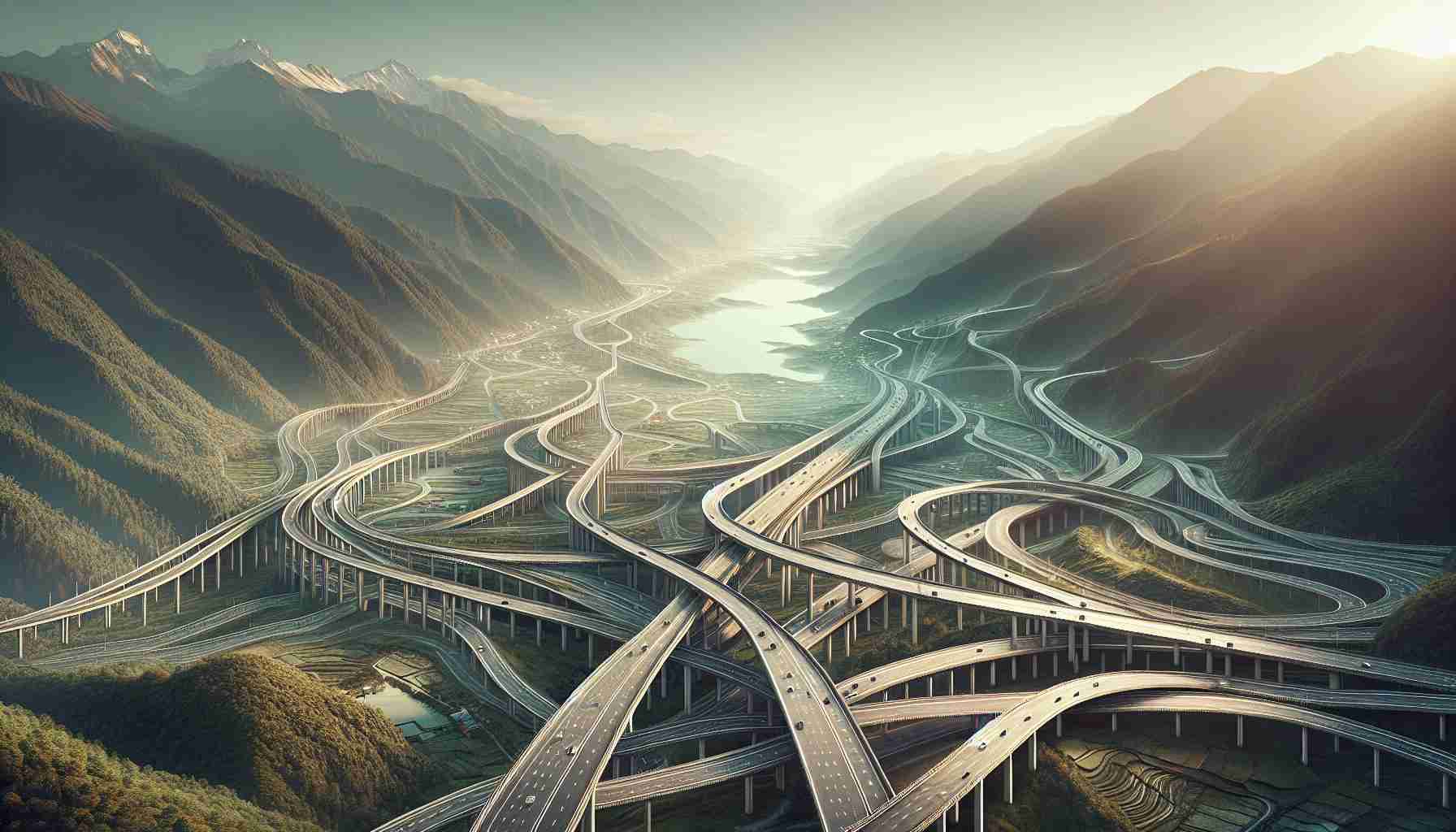In a major development, all nine local municipalities of Bajura district are now linked by an extensive road network. However, despite this significant progress, residents face a major obstacle: the lack of permanent bridges over key rivers and streams disrupts transportation, particularly during monsoon season.
The absence of a sturdy bridge over the Karnali River has caused considerable hardships for locals, who struggle to transport essential goods. While residents can utilize vehicles to travel during dry months, the rainy season forces them to rely on footpaths and suspension bridges to haul their supplies from areas like Pilichaur.
Nare Luhar, a local from Swamikartik Khapar Rural Municipality-2, expressed relief over the drastically reduced travel time for farmers and traders, noting it went from one week to a single day during dry conditions. Nonetheless, these benefits diminish significantly once the monsoon arrives.
Challenging conditions remain for remote villagers who find themselves cut off during heavy rain. Bharat Rokaya, the chair of the rural municipality, acknowledged that while efforts are being made to improve connectivity, the pressing need for a bridge over the Karnali persists.
In response to these needs, the Mahakali Bridge Project has initiated a substantial construction effort, aiming to complete a crucial bridge by 2025. Engineer Santosh Chand confirmed that groundwork is already in motion, signaling hope for a smoother transportation future in this vibrant district.
Bajura’s Road Network Expansion: Bridging the Gaps for Sustainable Development
Bajura District’s New Road Network: Overview
Bajura district, once marked by its isolated municipalities, has witnessed a transformative development with the establishment of a comprehensive road network connecting all nine local municipalities. This progress marks a pivotal step towards improving accessibility, trade, and economic growth in the region. However, despite this advancement, residents are still grappling with significant hurdles that arise during the monsoon season, primarily due to the absence of permanent bridges over critical rivers like the Karnali.
The Transportation Challenge
The lack of robust bridges continues to impede the transportation of essential goods, particularly during the rainy months. For instance, the absence of a sturdy bridge over the Karnali River has left locals, such as those from Swamikartik Khapar Rural Municipality, at the mercy of seasonal changes. While dry conditions allow farmers and traders to complete their journeys within a day, the monsoon drastically alters this dynamic, forcing them to rely on footpaths and less reliable suspension bridges.
Key Features of the Mahakali Bridge Project
In response to these challenges, the Mahakali Bridge Project has been initiated, with significant construction efforts already underway. The project’s objectives include:
– Connectivity Enhancement: The bridge will directly address the transportation bottlenecks caused by river barriers, allowing for seamless travel and transport of goods.
– Economic Development: Improved infrastructure will facilitate better access to markets, thereby boosting local economies and enhancing the livelihoods of residents.
– Target Completion: The construction is slated for completion by 2025, which engineers like Santosh Chand assert will be a game changer for the local populace.
Pros and Cons of Current Transportation Infrastructure
Pros:
– Enhancements in connectivity among municipalities.
– Reduced travel times during dry seasons.
– Increased access to markets for traders and farmers.
Cons:
– Vulnerability during monsoons due to lack of permanent bridges.
– Risk of isolation for remote villagers during heavy rain.
– Reliance on less reliable transportation options during adverse weather conditions.
Future Trends and Sustainability
As infrastructure projects like the Mahakali Bridge come to fruition, Bajura district is on the brink of significant changes. The development is not just about building bridges; it embodies a commitment to sustainable practices and resilience in the face of climate challenges. By focusing on durable and long-lasting solutions, the district can ensure that its improvements will withstand the test of time and environmental factors.
Conclusion
While Bajura has made strides in enhancing its road network, the pressing need for robust and permanent bridges, especially over rivers like the Karnali, remains critical. Continued efforts and investments in infrastructure will pave the way toward a more connected and prosperous future for the residents of Bajura.
For more information on infrastructure developments in Nepal, visit Nepal Government.
